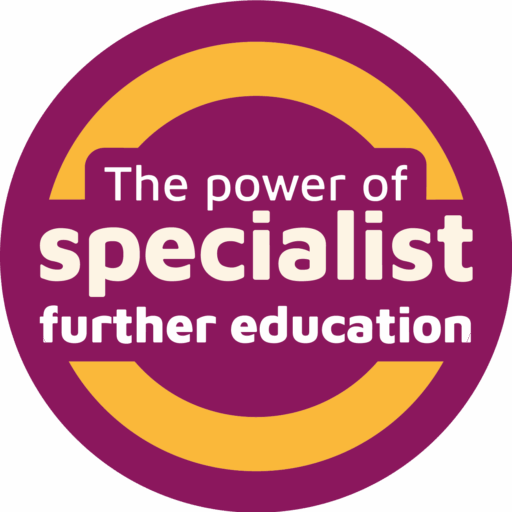For Advocates: Champion The Power of Specialist FE
It’s great to have you on board!
As a college, your involvement is key to making The Power of Specialist FE a success. This national campaign is all about celebrating specialist further education and the life-changing impact it has on learners, families and communities.
We’re encouraging all colleges, both specialist and general FE colleges with specialist provision, to engage actively with local stakeholders, decision-makers and media. We want you to shine a light on the vital work you do every day. In particular, we are aiming to get as many MPs or MS’s as possible to visit colleges during the awareness week (1 – 5 December) to see the provision in action and meet the learners who are benefiting from it.
Below you’ll find a range of tools to help you take part. This section will be continually updated in the lead-up to the campaign, so that you have everything you need to engage with the campaign and celebrate The Power of Specialist FE.
If you have any questions, please don’t hesitate to get in touch with natspec@plmr.co.uk and we will be on hand to support.
What’s in the toolkit
Resources to help colleges engage with the campaign include:
- A template letter to inform your college’s constituency MP or MS about the campaign and invite them to visit your college (versions available for specialist colleges and general FE colleges)
- A set of template social media graphics which can be used by colleges, staff and learners.
- A template press release for you to tailor and share with your local media outlets
- A graphic you and your colleagues can use in your email signature to highlight your participation in the campaign.
- A logo and branding designed for the campaign, which you can use in any activities or communications or apply to any items you wish to create such as tote bags, badges or mugs. You are welcome to co-brand with your own college logo.
Below, you will find some practical guidance on how to use each of these resources.
How to use the toolkit
1.
Getting in contact with your MP or MS – priority action
The first step is to contact your local MP or MS.
This can be done by:
- Downloading the stakeholder invitation letter – choose either the specialist college version or the general FE college version.
- Adapting the letter to include your college’s name and a short introduction or example relevant to your setting. You should also sign the letter off from a named representative for the college – for example, the college principal.
- Finding your MP’s email contact details using www.theyworkforyou.com. (You can also find their details on the UK Parliament website, or the Welsh Senedd website)
- Sending the letter as soon as possible, offering to host a visit during the awareness week so your MP or MS can meet learners and staff.
- Following up within 3–4 days if you haven’t received a response.
2.
2. Hosting MP or MS visits
If your MP or MS agrees to visit, feel free to contact the campaign team at PLMR so we can support you with briefing materials and setting up media opportunities.
As we progress through the campaign, we will also provide further details on how to follow up engagement with your MP or MS and other key political stakeholders.
3.
3. Engaging with local media
Your local press are always keen to celebrate local success stories. Use the template press release to share your involvement in the campaign.
You should update the template press release with some stories about your learners, any activities planned throughout the campaign week and a quote from your college’s principal.
Once you have tailored your press release, you can share this via email with your key local newspaper, radio and TV stations – for example, if you are based in Nottingham, you can share this with the Nottingham Post, BBC Radio Nottingham and ITV Central.
It’s important to include photos with this email to press, as local news outlets are motivated by strong visuals that can best illustrate the story.
4.
4. Sharing your story online
Use the social media post templates to share your campaign activity across your channels throughout the week.
- You can use the social media graphics to create your own posts to coincide with the campaign, highlighting your learners’ successes and sharing what your college does best.
- Tag Natspec’s accounts and use the hashtags provided in the social media guidance, so we can amplify your posts.
- Consider recording and posting short video clips from learners or staff to personalise your content.
5.
5. Keeping updated
- We’ll be sharing updates, new resources and highlights throughout the campaign. Natspec members and affiliates will automatically receive this information. If you would like to be added to our campaign mailing list, please send us your contact details.
- Using the graphics provided in the PowerPoint, insert your own learner photos to personalise their stories.
- If you have any questions, you can reach out directly to the PLMR team who are supporting with the coordination of the campaign.
